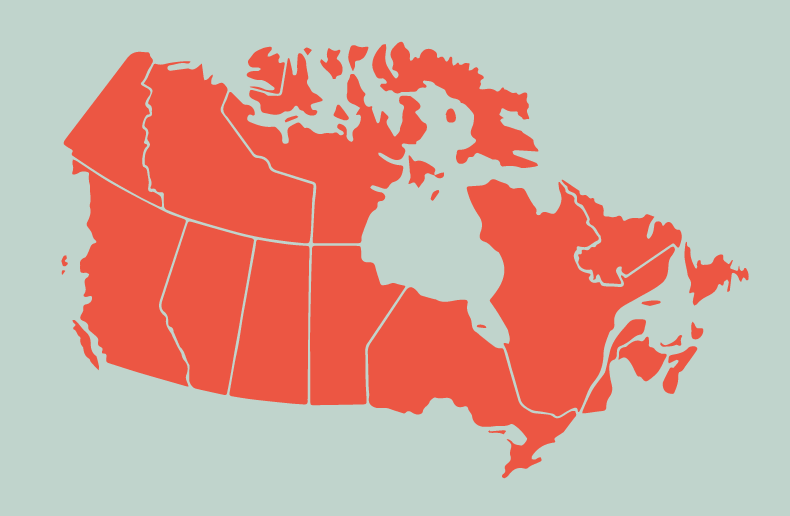Insurance advisors across Canada have long experienced the frustration of seeing their business restricted by provincial borders. The insurance industry and regulators are taking a renewed look at alleviating those interprovincial barriers, particularly now in the face of external threats to the Canadian economy and sovereignty.
Richard Pyper, chief executive officer of Monarch Wealth Systems of Mississauga, expresses some of the logistical difficulties his business faces that are beyond his control.
“If you have an opportunity with a client or [you get] a referral, or maybe you're dealing with a company on group benefits, and they move, or they open up another office in another province, then you can't really do business with them,” he says.
In order to continue on with that client relationship, it would be necessary to get licenced in that other province, and that can be a timely process. “If all things go smoothly, maybe you can get licensed a month or two later,” says Pyper.
One of the key obstacles to overcoming that barrier is a lack of harmonized standards. For example, while individual jurisdictions issue certificates for qualified life insurance advisors, continuing education (CE) proficiency isn’t required in any of the Maritime provinces, unlike the rest of the Canadian provinces and territories.
“You could be a car mechanic one day and the next day, you pass a simple life licence exam, and now you can go sell life insurance, but [in New Brunswick there is] no obligation to study and maintain your level of competency when new products or new legislation comes out that affects insurance policies,” explains Kevin Williams, proprietor of Kevin R. Williams Financial Services Inc. in Moncton.
It is also very confusing for the client if, for example, they have an advisor who has earned a Certified Financial Planner (CFP) or Chartered Life Underwriter (CLU) where CE credits need to be maintained to renew their designations, where those same standards don’t apply in all jurisdictions for insurance advisors with a life licence, Williams says.
Import securities passport model?
One structure that has come under consideration for the insurance industry is a passport system similar to that outlined in Regulation 11-102 by the Canadian Securities Administrators (CSA) which came into force in 2008. That established a system of harmonization for securities regulation across Canada, except Ontario, whose government opted out.
Could a passport-type system work for insurance advisors?
"For life and accident & sickness licenses, I believe a passport system would work,” says Pyper. “We also need to address the MGA (Managing General Agent) licensing and Corporate Agencies with the same approach. It’s not just about licensing; it's also about registering your corporation to do business in every province,” he says, noting that this will require provincial legislative changes.
“These should all be considered when reducing the regulatory burden for financial professionals when working in multiple provinces and making advice accessible for all Canadians. But I am confident there is a system that can be implemented,” adds Pyper.
“I find this idea of a passport system really interesting because on the securities side it works,” says Ken MacCoy, principal of RitePartner Financial Services in Chilliwack, who is licenced in both British Columbia and his native Nova Scotia.
This system works because it streamlines training, continuing education and the licensing process across the country. It also reduces compliance costs and allows investment professionals to expand their client portfolio across provincial boundaries, he elaborates.
But while MacCoy believes the passport system is a very good idea, and at least “in principle makes great sense,” he says there are practical problems with implementing it for insurance advisors. For example, it used to be that one would begin their career and continue working directly for an insurance company as a captive agent. But, he notes, most large insurance companies no longer have captive agents, so many new advisors don’t get that same level of expert training.
Nor does one-stop shopping necessarily work well for all insurance clients. “It's fine if you want to go to Walmart to buy clothes, or the Super Store to buy groceries, and items like that. But if you're looking to receive the best bang for the buck on the best product or service, then you need to deal with an independent broker,” says MacCoy, who explains that companies like London Life, Sun Life and Co-operators still have captive agents that provide good training, but no one company can provide all of the best products.
In order for a passport system to work for insurance advisors across Canada, at a bare minimum, two factors are required, says MacCoy. He says that all advisors should be required to be a member of Advocis in order to receive the uniform ongoing training and continuing education requirements they need, and that CE credits must be compulsory right across the country.
“[I’d] like to see a national passport on insurance and investments, to make it easier for all Canadians to access full financial support in whatever province they have an address in,” says Williams. “Right now, the rules are different for both life insurance and investments, which can make it confusing, so the passport would simplify things,” he adds.
Regulators should say something like, “for $1,000 a year, insurance professionals can have a life license for all provinces in Canada, and that should come accompanied by consistent standards of CE requirements in all provinces to maintain that national license,” he asserts.
Provincial, territorial regulators seek greater harmonization
“The requirements for insurance licensure aren’t fully harmonized across Canada; however, licensees can generally obtain licences in various jurisdictions across Canada without significant hurdles,” says Melinda Lau, a spokesperson for the Insurance Council of British Columbia (ICoBC).
She notes that in British Columbia, for instance, the province recognizes licences from other jurisdictions and has a process for issuing a British Columbia licence equivalent to the applicant’s home jurisdiction without significant barriers.
Lau acknowledges, however, that differences in provincial and territorial legislation for insurance pose challenges for seamless regulatory oversight of professionals working across Canada.
“More seamless regulatory oversight for inter-jurisdictional practice requires a certain amount of harmonization of legislative requirements for professional activities, as well as harmonization of qualification for professional licensure, standards of conduct, as well as provisions to allow for disciplinary action across jurisdictional borders,” she says.
Lau says that much work on these topics is already ongoing between the provincial and territorial regulators, chiefly through the auspices of the Canadian Insurance Services Regulatory Organizations (CISRO), with the goal of providing greater insurance licensing harmonization in Canada, and achieving a structure that provides ease of movement between the provinces and territories.
British Columbia has also “been working on a competency framework for general insurance licensure, intended to establish a foundation for performance standards and competency expectations for professionals, which could in turn support greater harmonization,” she adds.
“We support efforts to improve regulatory co-operation. We look forward to working with governments and other regulators to improve outcomes for consumers and industry professionals,” says Russ Courtney, a spokesperson for the Financial Services Regulatory Authority of Ontario.
Timely issues
Insurance harmonization issues are also very timely, within the larger context of a renewed push to break down provincial barriers, including both trade and labour and mobility barriers, in the face of U.S. economic and sovereignty threats.
“I'm hoping that something good comes of what's going on south of the border,” says Pyper. “That ‘Canada Strong, Canada First’ mentality says, ‘How do we encourage growth for entrepreneurs and business people in Canada and make it easier to do business across the country?’”
Other industries will also benefit if they, and the federal and provincial governments can work together, says Pyper.
“These barriers are really crazy,” says Williams. “We’ve got to support each other. Let's cut through the red tape. It's all about the client. Let’s take care of the client.”







